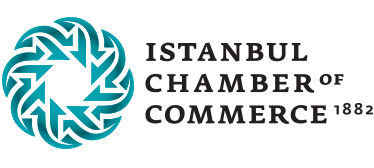What is the BMAT exam?
The BMAT exam is a department entrance exam that has been implemented with the signature of Cambridge University and has been accepted by many of the world’s leading universities since 2003. The BMAT abbreviation stands for BioMedical Admissions Test. It’s accepted as part of the application process for student candidates who aim to study in departments such as medicine, biomedicine, dentistry and veterinary medicine in Europe.
This exam, which is sought by many universities, especially in the Netherlands, Hungary, Croatia, Singapore, Spain, Malaysia, Thailand and England, is important for anyone who wants to study health sciences in the mentioned countries. So much so that with a respectable BMAT score, it is very easy to get the chance to study at the most prestigious universities in the world. In order to take this exam, generally held four times a year at equal intervals, candidates must complete their applications at least one month before the exam date. The BMAT exam is usually administered at authorized ‘open centres’ located around the world. UK candidates usually take the exam at their school or college.
The standard exam fee for all candidates who will take the exam in EU countries and England is 46 Euros. The participation fee for the BMAT exam to be held in a country other than these is 78 Euros. In addition, financial support is also available for prospective students who have difficulty in meeting the costs of testing. Again, if certain criteria determined by Cambridge are met, student candidates can also gain the right to get the fee back for the exam.
After the exam is organized, the results are announced on the official website of BMAT. In the continuation of this process, student candidates are expected to receive their results within 60 days and apply to the university they wish. At the end of 60 days, candidates lose their access to BMAT results. Base scores and interpretation of results may vary according to universities. For this reason, very good research should be done both before the exam and in the future, and if necessary, support from experts should be sought.
BMAT Exam Structure
BMAT consists of 3 parts in total and requires both multiple-choice questions and writing a text. In the first 2 sections where multiple-choice questions are included, each question is worth 1 point. In the evaluation process of the exam results, the scores obtained from each section are calculated on a scale from 1 to 9. The total evaluation for each section is converted on the BMAT scale, with the highest being 1 and the lowest being 9 points.
Candidates who take the exam achieve an average of 5 points. However, a score of 6.0 and above are considered in the ‘good grade’ category. After the first 2 sections, the essay section, where the candidates perform their writing experience, is evaluated between 0-5 points and with A, C or E grades.
The BMAT exam is a standardized exam prepared both in line with the claims of the departments that the candidates will study after and the quality and reputation of the universities. For this reason, only candidates who are careful, programmed and consciously prepared can achieve success. It’s also possible to achieve better results with the following items to be considered while preparing for the BMAT:
- Browsing past BMAT exams and reviewing articles written about it will help candidates gain insight into exam questions.
- During the exam preparation process, the practice exams that the candidates will apply by themselves or with an expert will provide the chance to practice in programming the time that should be allocated to the BMAT sections.
- Checking the test specifications is also an important point in the preparation process.
- The videos and preparation guides that the candidates can access through the CAAT (Cambridge Assessment Admissions Testing) website are also documents that will be very useful when studying for the BMAT.
BMAT Exam Content
During the 2-hour exam duration, the BMAT tests whether candidates have sufficient knowledge of the mathematical and scientific knowledge necessary to study at the undergraduate level, as well as perform critical thinking, problem-solving, written communication, crisis management and idea development.
Consisting of 62 questions in total and a writing task (Candidates must choose one of 3 different questions and write the relevant essay here), this exam mainly evaluates the candidates’ ability and capacity to use existing knowledge. From this point of view, the BMAT, which is not only a knowledge assessment exam, is an exam that does not include any medical-related departmental knowledge. The scores obtained in the BMAT exam are only valid during the year in which the exam is administered. It is not possible to use the points obtained in other years. The advantage of this rule for candidates is that past low exam scores do not have a detrimental effect on the exam result in the current year.
Talent and Skills Department
This section generally tests candidates’ ability to understand an argument, solve a problem, and draw inferences from the data presented. In the talent and skill section, where each candidate is given 60 minutes for 35 questions, multiple-choice and short answer questions are included.
Scientific Information and Applications Department
In the scientific knowledge and applications section, where a total of 27 questions are asked and candidates are given 30 minutes to complete, there are questions on mathematics and science.
Candidates for this department are responsible for almost every subject in the high school curriculum. In parallel with the changing curricula over time, the questions asked in this section are also revised.
It is important for the candidates to consider this issue, especially during the preparation process and to compare the curriculum of the semester with the study programs. This section also tests a candidate’s ability to apply scientific knowledge typically covered in Biology, Physics, Chemistry and Mathematics by age 16.
Writing Department
For 30 minutes, the candidate’s ability to select, develop and organize ideas is tested in the writing section, as well as their ability to convey this information in short, effective and understandable writing.
In this section, scoring is done by two different reviewers. One expert scores the candidate’s quality content on a scale between 0-5 points, and the other expert evaluates the candidate’s ability to use English in order to use the A, C, and E scale.
In the undergraduate application process, an image of the composition written by the candidate is given to each institution that he/she wishes to enter. Calculators and classical dictionaries, including bilingual dictionaries, are not permitted during the exam.
Some Universities Accepting Students with BMAT Exam
In addition to being the most important exam developed for medical education in Europe, the BMAT exam also offers students the chance to study at many valuable universities. The BMAT exam, which gives candidates the opportunity to stand out among many students, is also the most effective way to evaluate the potential of students with various qualifications. Some of the universities where you can study with the BMAT exam result are:
- Brighton and Sussex Medical School
- Cambridge University
- Imperial College London
- Keele University
- Lancaster University
- Leeds University
- Oxford University
- Manchester University
- University College London
- University of Twente, Netherlands
- Università Campus Bio-Medico di Roma (UCBM), Italy
- University of Pecs
- University of Zagreb



